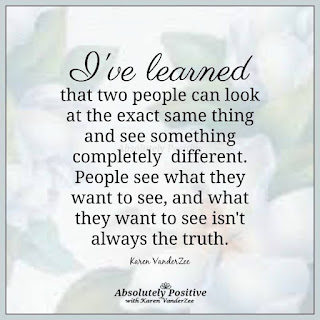Manipulation is An Ugly Game of Self-Destructive Behavior
Manipulation: to control or play-upon by artful, unfair, or insidious means,
especially to one's own advantage; to force change by artful or unfair means so
as to serve one's purpose.
Every
codependent is familiar with manipulation. We have all engaged in manipulative
behavior for the express purpose of getting from others what we were not
willing to give to ourselves—namely love.
In
fact, for the non-recovering codependent or addict, manipulation becomes a way
of life, a survival skill. We need to be needed or loved and so we engage in
manipulative behaviors, like people-pleasing and caretaking. We falsify how we
really feel about this or that in order to please (manipulate) someone into
loving us. We bend over backwards to meet the needs of another person, not
because we truly love and care about him/her, but because we want to manipulate
him/her into appreciating us and making us feel good about ourselves.
But
there are other forms of manipulation that we, and other addicts, use; and
those forms of manipulation involve shame and guilt. Caretakers are especially
good at shaming or guilting their victims. Sometimes our initial caretaking
(manipulative) behavior doesn’t produce the desired results.
For
example, we have been quick to volunteer to take someone to their doctor’s
appointment when their car was in the shop, to water their plants for them when
they are out of town, to listen to their every drama for hours on end, and yet,
when we want them to do something for us in return, they balk. Immediately, we
are angry and we go into attack mode. Our weapons of mass-emotional destruction
are shame and guilt.
Shaming
words come rolling off our lips like machine gun bullets: “After all I’ve done
for you?!!! And you won’t even do this one little thing for me? What kind of
friend are you? Not a very good one, I guess!!!”
Of
course, these same shaming and guilting words can be used against us by other
addicts. We may have friends or relatives who are engulfed in addictive
behaviors and who are always expecting us to rescue them. A recovering person
knows that he or she cannot rescue anyone but themselves. To try and rescue
another person is to enable them to remain irresponsible for the own behavior and
the consequences of that behavior.
For
example, we may have a sister who is a gambling addict. She has developed a
pattern of behavior that goes like this: She is anxiously uncomfortable with herself,
can’t take the difficult feelings any longer and so runs off to the casino. She
gets an immediate reprieve from those heavy difficult feelings by simply
driving toward the casino. All she has to do is anticipate walking up to the
gambling tables and rolling those dice to feel better. Once she arrives at the casino,
she rides the rollercoaster of winning and losing. She gets a further high from
the exhilaration of winning, and she continues that exhilaration through the
denial of losing. She’s just sure that this next roll of the dice will hit the
jackpot. And if it doesn’t, she knows that she has YOU to fall back on.
Oh,
yes. She has that good old brother or sister who has become her personal
banker. She knows that if she racks up a big debt, she can come to you, whine
and act pitiful and you will give her the money she needs to pay-off her debt
(one more time). If her whining doesn’t work, then she, too, has her big guns
to use on you: shame and guilt.
Put
on your armor and allow her to shoot. Allow her to shame and guilt you in every
way possible, while understanding that it is her sick, twisted addictive
personality that is insulting you. Feel sorry for her, feel empathy, offer her
love and prayerful support. But give her no more money.
She
is responsible for her behavior, and as long as you are willing to be
responsible for her behavior, she never will be. As long as you are there to
bail her out, she has no reason to change or help herself.
This
is why it’s so important to understand the trappings of addictive manipulation.
Once you understand that you are being “played-upon” in “insidious” ways for
the sole purpose of ensuring that someone else gets what they want from you,
you can stand-up to it. You can realize that all of the other person’s ugly
words are about them and not about you.
Once
you make the choice to stop enabling another person’s bad behavior, you will
make a tremendously important change inside yourself. And once the other person
realizes that you will no longer rescue them from their own self-defeating
behavior, they will be forced to change as well—hopefully for the better.
Manipulation
is a very ugly game. If you are engaged in it in any way, learn how to stop
engaging in it. Healthy relationships do not involve manipulation.




Comments
Post a Comment